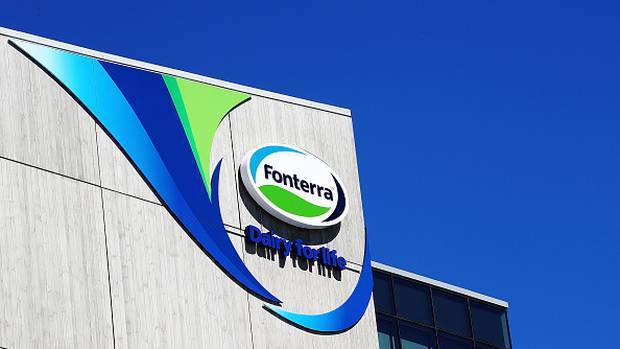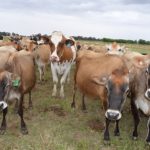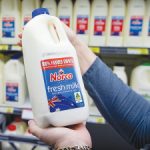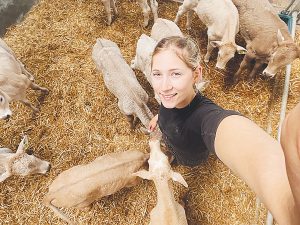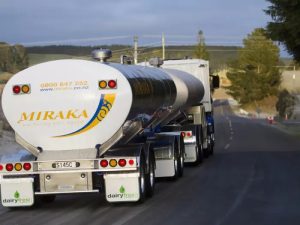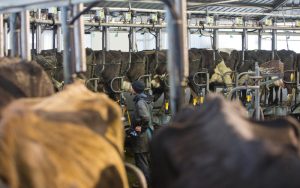
New Zealand’s biggest company will provide a new fixed milk price programme referenced to the NZX milk futures market for the imminent 2019-2020 dairy season, with farmers required to pay to participate.
A service fee of 10c per kilogram of milksolids will completely self-fund the programme, said cooperative affairs managing director Mike Cronin.
The average New Zealand dairy cow herd produces about 158,000kg of milksolids per season. Farmers will be able to fix the price of up to 50 per cent of their milk production over the season.
But farmers, who already have to pay to supply Fonterra through the purchase of shares linked to their production, aren’t being asked to fund the new service because of the company’s financial squeeze, which saw it post a historic first annual loss of $196 million last year and debt of $6.2 billion.
In fact, farmer advocate, the Fonterra Shareholders’ Council, unanimously approved the new scheme, said chairman Duncan Coull.
The payment requirement was so cooperative shareholders who didn’t participate weren’t unfairly burdened with the administration costs of the programme, he said.
A previous fixed price scheme called the guaranteed milk price introduced in 2014 did not require farmers to pay a service fee.
That scheme was based on the company’s forecasted milk price, whereas the new fixed price offer is based on an independent market price.
The previous programme provoked dissent among some of Fonterra’s 10,000 farmer- shareholders who said it was against the spirit of cooperative principles. It was scrapped after three dairy seasons in 2016.
Farmers will be able to participate up to 10 times a year in the new fixed price programme. The previous scheme was limited to twice a year participatory events.
All farmers can participate on a monthly basis – excluding January and February – and will be able to fix up to 50 per cent of their estimated milk production per farm over the course of the season.
The risk of fixing is that, like bank interest rates, the fixed milk price could end up being higher or lower than Fonterra’s final farmgate milk price.
The company is advising farmers to know their breakeven point and consult a financial advisor about their best option for their business.
Fonterra will make at least 1 million kilograms of milksolids available at every monthly event, up to a total of 5 per cent of New Zealand milk supply available in a given season, Cronin said.
Fonterra controls about 80 per cent of the country’s raw milk production. Last year it collected 1.5 billion kg of milksolids.
Because the amount of monthly milk volume available for a fixed price will be limited, applications may be accepted in full or in part.
A well as benefiting farmers, fixed milk prices helps Fonterra lock in longer term contracts with customers at set prices, which attract an additional premium for doing so, he said.
Customers also value price certainty for commodities bought from Fonterra.
The country’s second biggest milk processor and exporter Open Country Dairy offers a fixed milk price scheme and does not require suppliers to pay to participate.
Much smaller than Fonterra, Open Country is privately owned and does not require farmers to buy shares to supply it.
Fonterra’s Coull said Open Country also had a very different payment methodology to the cooperative so the two offers could not be reasonably compared.
Despite complaints that it wasn’t in the cooperative spirit, Fonterra’s previous guaranteed milk price scheme attracted plenty of applications.
The scheme was introduced for the 2014-2015 season after a successful pilot with 328 shareholders who supplied 15 million kgMS for a guaranteed price of $7/kg.
The $7 price was based on the opening forecast for the season. The pilot attracted such a high level of support that applications were received to supply 37 million kgMS. Participants were scaled back to 40 per cent of their original application.
Dairying in New Zealand is a $15 billion industry, responsible for 28 per cent of total annual exports.
